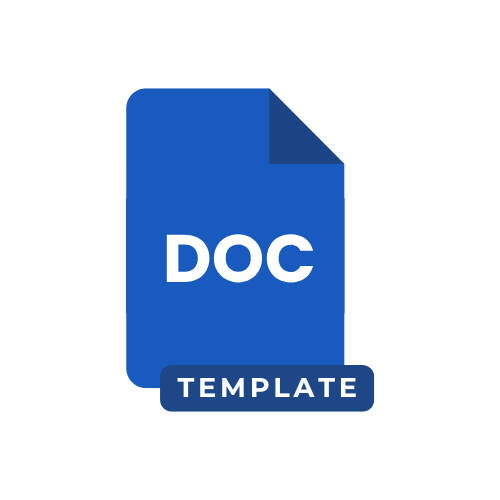Tinjauan Hukum Terhadap Kontaminasi Unsur Haram Pada Produk Bersertifikat Perspektif Undang-Undang Jaminan Produk Halal
Kata Kunci:
Halal Product Assurance, Haram Contamination, Legal Pluralism, Regulatory GovernanceAbstrak
The issue of haram contamination in certified halal products has become a critical challenge for both regulators and industries in ensuring consumer trust and compliance with Islamic law. In Indonesia, the world’s largest Muslim-majority country, several cases of cross-contamination in food, cosmetics, and pharmaceuticals have revealed the vulnerability of the halal certification system and raised questions about the effectiveness of Law No. 33 of 2014 on Halal Product Assurance (UU JPH). This study examines the regulatory framework, institutional arrangements, and enforcement mechanisms in addressing contamination, while also comparing Indonesia’s system with Malaysia, Brunei Darussalam, and South Korea. Using a normative legal research approach supported by empirical data, the study integrates legal, economic, and socio-cultural perspectives. Findings show that Indonesia’s multi-actor model involving BPJPH, MUI, and Halal Inspection Bodies often results in overlapping authority and weak supervision capacity. Small and medium enterprises (SMEs) face significant challenges in meeting certification costs and technical requirements, making them more vulnerable to allegations of non-compliance. Moreover, existing sanctions remain largely administrative and fail to provide sufficient deterrence. Comparative analysis demonstrates that centralized authority (Malaysia), strong penal enforcement (Brunei), and international collaboration (South Korea) offer important lessons for Indonesia. This research contributes novelty by highlighting the interlegal dynamics of halal governance and proposing a reconstruction of the system through regulatory simplification, institutional consolidation, and risk-based supervision. Strengthening transparency and adopting digital traceability mechanisms are essential to enhance consumer trust and position Indonesia as a credible global halal hub.
Unduhan
Referensi
Akbar, A. F., Mulyani, T., & Pujiastuti, E. (2023). Penerbitan Sertifikasi Halal Terhadap Produk Makanan Ringan. Semarang Law Review (SLR), 4(1). https://doi.org/10.26623/slr.v4i1.6516
Azizah, M. (2021). Peran Negara dalam Perlindungan Konsumen Muslim di Indonesia. Volksgeist: Jurnal Ilmu Hukum Dan Konstitusi, 4(2). https://doi.org/10.24090/volksgeist.v4i2.5738
Baldwin, R., & Cave, M. (1999). Understanding Regulation Theory, Strategy, and Practice. In Oxford University Press.
Banakar, R., & Travers, M. (2005). Theory and method in socio-legal research. In Oñati international series in law and society.
John W. Creswell. (2016). Research Design, Qualitative, Quantitative and Mixed Methods Approaches, Trans. Pustaka Pelajar.
Kamali, M. H. (2021a). Halal and Tayyib Compared. In Shariah and the Halal Industry. https://doi.org/10.1093/oso/9780197538616.003.0005
Kamali, M. H. (2021b). Halal in Indonesia, New Zealand, and Japan. In Shariah and the Halal Industry. https://doi.org/10.1093/oso/9780197538616.003.0024
Kharrazi, M., Fautanu, I., Suganda, A., & Maryano. (2024). Legal Analysis of MUI’s Authority in Providing Halal Label Guarantees after the Issuance of Law Number 33 of 2014 concerning Guarantees for Halal Products. Revista de Gestão Social e Ambiental, 18(9), e5761. https://doi.org/10.24857/rgsa.v18n9-057
Kim, R. (2021). Religion, business, and global visions: An exploration of South Korea’s discourse on halal. 26(2), 117–149. https://doi.org/10.22372/IJKH.2021.26.2.117
Majelis Ulama Indonesia. (2025). Halal Directory 2025. https://halalmui.org/wp-content/uploads/2025/02/LPPOM-Halal-Directory-2025.pdf
Marasabessy, F. (2022). Pertanggungjawaban Hukum Mui Dan Badan Penyelenggara Jaminan Produk Halal Dalam Menerbitkan Sertifikat Halal Produk Haram Yang Terlanjur Beredar. I-BEST: Islamic Banking & Economic Law Studies, 1(2). https://doi.org/10.36769/ibest.v1i2.253
Marzuki, P. M. (2017). Penelitian Hukum: Edisi Revisi, 13th ed. In Prenadamedia (Vol. 151, Issue 2).
Mohammad Yusuf, Dewi Mahrani Rangkuty, Robi Krisna, & Mochammad Erwin Raditio. (2022). Economic analysis of halal certification by the Halal Product Assurance Administration Agency. World Journal of Advanced Research and Reviews, 13(1). https://doi.org/10.30574/wjarr.2022.13.1.0077
mui.or.id. (2025). Temuan BPJPH Produk Mengandung DNA Babi, Begini Penjelasan Lengkap LPPOM. https://mui.or.id/baca/berita/terkait-temuan-bpjph-ada-produk-mengandung-dna-babi-dirut-lppom-mui-setelah-dicek-laboratarium-tidak-terbukti
Randeree, K. (2019). Challenges in halal food ecosystems: the case of the United Arab Emirates. British Food Journal, 121(5). https://doi.org/10.1108/BFJ-08-2018-0515
Renn, O. (2012). Risk governance: Coping with uncertainty in a complex world. In Risk Governance: Coping with Uncertainty in a Complex World. https://doi.org/10.4324/9781849772440
Salsabila, N., Suciati, Y., & Astiwara, E. M. (2023). Analisis Kandungan DNA Babi pada Produk Daging Olahan di Pasar-Pasar Kelurahan Cempaka Putih dan Tinjauannya Menurut Pandangan Islam. Junior Medical Journal, 2(1). https://doi.org/10.33476/jmj.v2i1.3789
Sayekti, N. W. (2014). Jaminan Produk Halal dalam Perspektif Kelembagaan. Jurnal Ekonomi & Kebijakan Publik, 5(2).
Secinaro, S., Radwan, M., Calandra, D., & Biancone, P. (2021). Halal certification impact on firms’ corporate social responsibility disclosure: Evidence from the food & beverage sector in Italy. Corporate Social Responsibility and Environmental Management, 28(4). https://doi.org/10.1002/csr.2161
Shafie, S., & Othman, M. N. (2014). Halal Certification: An International Marketing Issues and Challenges.
Siti Zakiah Abu Bakar et al. (2023). Challenges in the Implementation of Halal Certification Among Small Medium Enterprises (SMEs). Russian Law Journal, 11(4s). https://doi.org/10.52783/rlj.v11i4s.858
Soekamto, S., & Mamudji, S. (2015). Penelitian Hukum Normatif: Suatu Tinjauan Singkat [Normative Legal Research: A Brief Overview]. In Jakarta: Rajawali Pers.
Sulaiman, N. S., Abdullah, R., & Hashim, N. (2023). Halal Industry Development in Brunei Darussalam: Realities and Challenges. KnE Social Sciences. https://doi.org/10.18502/kss.v8i18.14308
Supriyadi, S., Aulia, R., Nubahai, L., Ab Rahman, R., & Mohamed, R. (2024). Legal Effectiveness of Halal Product Certification in Improving Business Economics in Indonesia and Malaysia. Al-Ahkam, 34(1), 193–220. https://doi.org/10.21580/ahkam.2024.34.1.20546
Tieman, M. (2011). The application of Halal in supply chain management: In-depth interviews. Journal of Islamic Marketing, 2(2). https://doi.org/10.1108/17590831111139893
Waluyo, A. (2020). The developmental policy of halal product guarantee in the paradigm of maqasid shariah in Indonesia. Ijtihad: Jurnal Wacana Hukum Islam Dan Kemanusiaan, 20(1). https://doi.org/10.18326/ijtihad.v20i1.41-60.
Unduhan
Diterbitkan
Terbitan
Bagian
Lisensi
Hak Cipta (c) 2025 Karlina Rahayu, A. Yuli Tauvani (Author)

Artikel ini berlisensi Creative Commons Attribution 4.0 International License.













